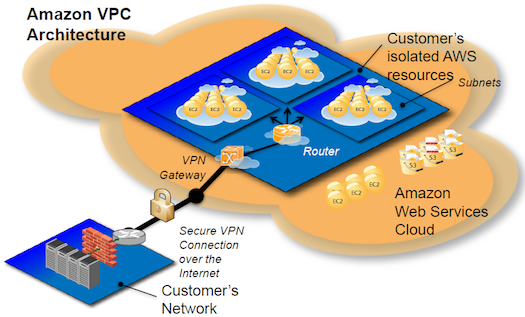[Editor: This is the fourth of a five-part series on virtualization and cloud topics from Ivo Dujmovic, an architect in our Applications Technology Integration group.]
Amazon Elastic Compute Cloud (Amazon EC2) is the quintessential public cloud. Oracle has partnered extensively with Amazon Web Services (AWS), and in this article I hope to clarify were we currently stand with using E-Business Suite on Amazon EC2.
Public Clouds can introduce uncertified stack additions in the virtualization layer (hypervisor, provisioning tools). They also introduce a lack of control over physical hardware: neither the end-customer nor Oracle has control of the hardware or the virtualization stack below the OS. This is a new factor in the relationship between Oracle and its customers.

Amazon EC2 for non-production EBS environments
For the time being, the novelty of public clouds and the currently-low number of proof points means that we must initially take a prudent and cautious strategy for using Amazon EC2 to host E-Business Suite instances.
Since Amazon EC2 uses a virtualization engine that is not supported by Oracle and has not been certified with E-Business Suite, this environment is not supported for production usage of E-Business Suite. Using Amazon EC2 for hosting E-Business Suite instances may be suitable for non-production instances such as demonstration instances, test environments, and development environments.
For non-production instances, Oracle will provide support for issues that reproduce on standard certified configurations. Users will be directed to Amazon for any virtualization-related issues.
Four Reasons to use Amazon EC2 Features for E-Business Suite environments
- Virtual private cloud: VPN-based extension to the customer’s intranet
- Elastic IPs: allow sticky IP addresses for persistent references between nodes
- Large file import service: for DBFs larger than 5 TB, it is better to ship them on 2TB disks to Amazon — you could have your instance up in 4-5 days
- High-memory instance types: EBS needs higher memory-to-CPU ratios, and higher I/O bandwidth
We expect the future to bring more great functionality and even tighter integration between E-Business Suite and Amazon’s web services. Stay tuned…
References
Related Articles- Part 1: E-Business Suite 12.1.1 Templates for Oracle VM Now Available
- Part 2: Using Oracle VM with Oracle E-Business Suite Virtualization Kit
- Part 3: On Clouds and Virtualization in EBS Environments (OpenWorld 2009 Recap)
- Part 4: Deploying E-Business Suite on Amazon Web Services Elastic Compute Cloud
- Part 5: Live Migration of EBS Services Using Oracle VM
